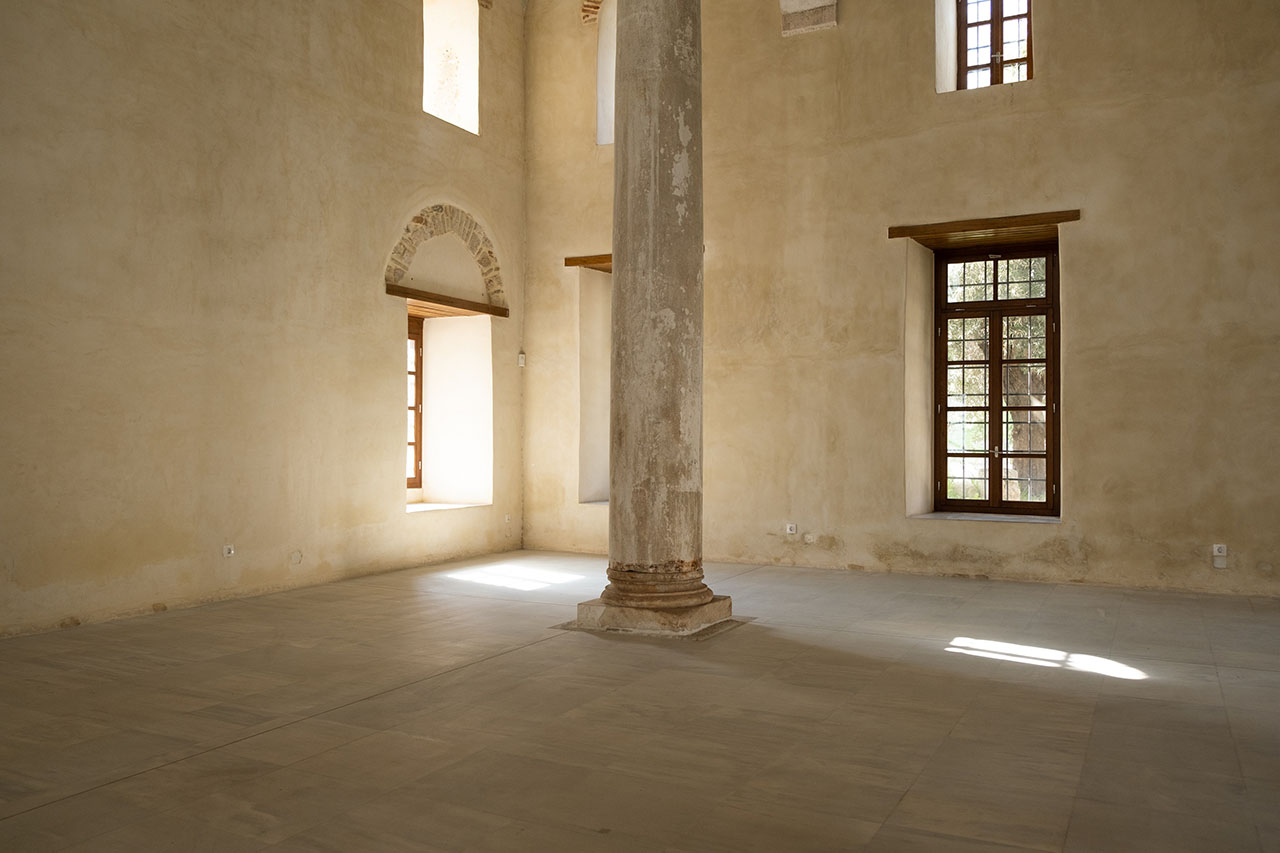Contact
ADDRESS
STAVROS NIARCHOS FOUNDATION
CULTURAL CENTER
364 Syggrou Avenue, Kallithea
TEL.
Box Office:
+30 213 0885700
Box Office email:
boxoffice@nationalopera.gr
Daily 09.00-21.00
info@nationalopera.gr
Register to our Newsletter


Dimitris Kountouras, Centre for Early Music of the Athens Conservatoire
Performers:
Dimitris Kountouras music direction, medieval flutes
Irini Bilini-Moraiti voice, viela
Vasso Karioti, Sophia Ketentzian, Irida Skolidi (members of the vocal ensemble of the Athens Conservatoire Centre for Early Music) voice
Practical information:
• Audience members can enter all venues for free, on a first come first served basis. No advance booking is required.
• Due to the limited space available in many of the festival venues, some of the concerts will be repeated up to three times per day, to give the chance to as large an audience as possible to attend them.
• The concerts of the festival will be of short duration (from 25 to 40 minutes on average), so that audience members can attend more than one, if they wish so.
• The distance from one venue to the other is small, so that audience members have the chance to enjoy many of the festival events.
• The detailed programme will be available online at nationalopera.gr and digitalculture.gov.gr, while the printed programme that will be distributed to the public will include a map with all the venues, summary descriptions of the events, and QR codes referring to the detailed programme on the GNO website.
• All preventive measures against COVID-19 will be adhered to in all venues.
Starts at 17.00, 18.00 and 19.00 | 
Duration: approx. 30 min.
Capacity max. 50 person

An Easter tribute to medieval sacred music revolving around the typical of its time sequenza Dies iræ (Day of Wrath), with verses inspired by John’s Book of Revelation. Although it is best known as a part of Requiems written by various composers, during the Middle Ages Dies iræ also appeared as a parody song, a fact that lent it a more popular character. The programme concludes with sacred hymns echoing a transcendental manifestation of faith, to music by Hildegard von Bingen.
The Centre for Early Music of the Athens Conservatoire, whose goal is to study and spread Early Music, presents thematic programmes of a repertoire of largely unknown music from the medieval, Renaissance and Baroque periods, under the direction of Dimitris Kountouras. So far it has performed and recorded programmes for the Third Programme of the Hellenic Broadcasting Corporation (Secular music by Guillaume de Machaut, Florentine Renaissance), the Athens Concert Hall, the Greek National Opera, etc.
Fethiye Mosque (Roman Agora)
The Muslim house of worship known as Fethiye Mosque, “The Conqueror’s Mosque”, is one of the most important monuments of the Ottoman era in Athens. It stands at the junction of Pelopidas and Panos Streets inside the Roman Agora. According to the prevailing view, it was built in the second half of the 17th century at a place where there used to be a Christian church and earlier than that, a mosque. It was also known as “the mosque of Staropazaro” because it stood within the area where the cereal bazaar was held. After the Greek War of Independence of 1821 and the formation of the modern Greek state, the Fethiye Mosque was used for various purposes. It was restored in 2015 and today it is both a monument open to the public and a venue that hosts various cultural events.
First Sacred Music Festival info leaflet available to read and download here
STAVROS NIARCHOS FOUNDATION
CULTURAL CENTER
364 Syggrou Avenue, Kallithea
Box Office:
+30 213 0885700
Box Office email:
boxoffice@nationalopera.gr
Daily 09.00-21.00
info@nationalopera.gr